|
Enhancing Intimacy and Passion
5-1-21 9am-3pm EDT Register Here!!
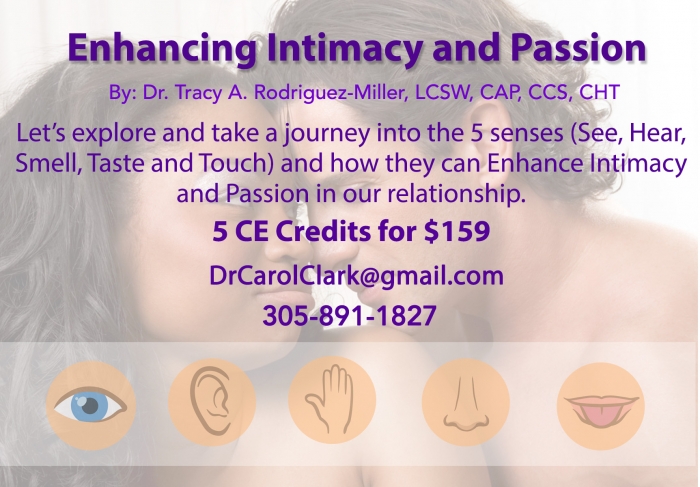
$159 for 5 CEs - Via Live Webinar
This course will prepare student to 1) Define Intimacy & Passion; 2) Identify the
reasons why a relationship may lose intimacy and passion; 3) Define the Five Senses: See, Hear, Smell, Taste and Touch. Explore how utilizing the Five Senses: See, Hear, Smell, Taste and Touch can enhance intimacy & passion; and 4) Describe different techniques that incorporate the senses for enhancing intimacy and passion.
___________________________________________________________________________________
Non- Monogamous Lifestyles
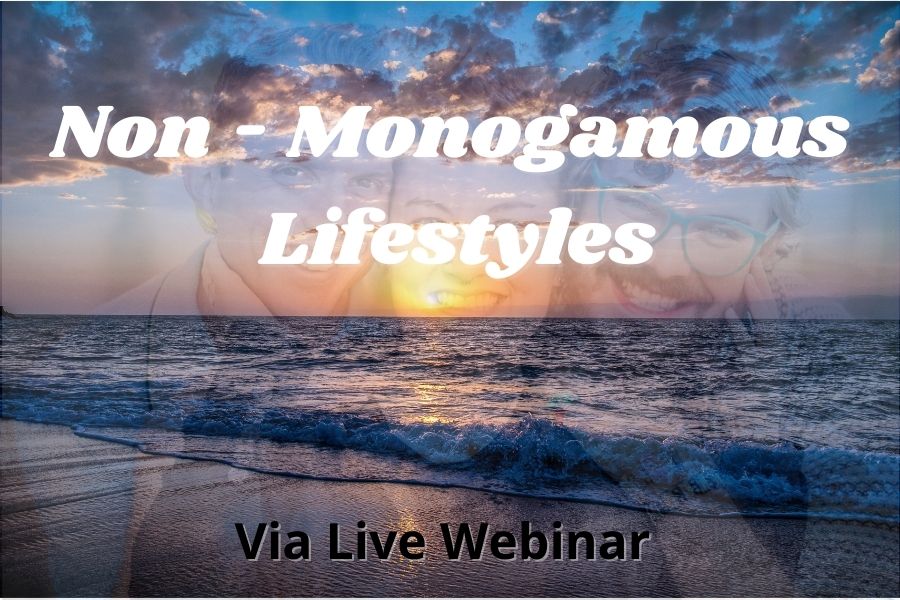 5-22-2021 12pm-5pm EDT 5-22-2021 12pm-5pm EDT
Via Live Webinar
Non-Monogamous Lifestyles
Ms. Gentille is an International Clinical Sexologist, award winning author, and director of the Somatic Integrative Healing Institute.
$159 for 5 CE hrs
|
|
|
Codependence By Any Other Name
“A rose by any other name would smell as sweet” Shakespeare, Romeo and Juliet
A lot of us are used to the controversy about the term “sex addiction,” but there is also a growing discussion about the term “codependence.”
I’d like to break it down and then am happy to hear anyone’s thoughts about it.
Let’s start with “dependence.” Mirriam-Webster defines it as “the quality or state of being influenced or determined by or subject to another.” They also define it as “drug addiction.” So, the words “another” and “drug” are used interchangeably. In other words, a person can be dependent, or an addict, if they are being controlled – willingly or by virtue of the power of their limbic system – by something or someone external to themselves.
In this way, I define addiction as well – seeking something external to control one’s internal state, whether it is physical or emotional pain or distress. The external “something” can be a drug, such as heroin or cocaine, or a behavior, such as seeking sexual gratification or using technology. Since the drug or behavior can only temporarily relieve the symptoms of pain but don’t address the underlying cause, there will never be enough and hence, addiction.
So, what is codependence? It is similar but with a twist. A codependent person pairs up with a dependent person and engages in trying to control that external person’s behavior or feelings in order to control their own internal distress.
For example, if my sense of well-being is based on my partner’s mood, then I will constantly be trying to control his mood so I feel ok. I will be focused on not making him mad or trying to make him happy. The problem is, if he is an addict, then “mad” and “sad” are emotional states that allow him to reach for his drug or behavior of choice, so my efforts will be in vain and I will continue in a state of anxiety and stress. If this has been going on for some time, then it will feel normal to me.
Why does this happen? The answer to any “why” is “because we are addicts.” The answer to why we are addicts is because we experienced some attachment disruption in childhood that led to a fear of intimacy and connection. We are both engaged in an unconscious controlling of intimacy so we maintain a comfortable distance from each other (see Intimacy by the Numbers). This is not a conscious choice. Consciously, we want to be more connected, but our limbic systems do not feel safe when we get too close. The resulting distress from this push-pull between thinking brain and emotional brain is only relieved by reaching for those external drugs or behaviors or trying to control those external people’s emotions and behaviors. Is this making sense?
The reason “codependence” has taken on an unsavory feel is because historically, therapists and authors and others have pathologized people, mostly women, who are in relationships with addicts by giving them diagnoses such as Borderline Personality Disorder, Dependent Personality Disorder, Histrionic Personality Disorder, Bi-Polar Disorder, etc. Do you see a theme here? Especially in the last 20-30 years since sex addiction was identified as a thing, partners of sex addicts who were blind-sided by the sudden discovery of the addicts’ behavior were labeled as “codependent” and their subsequent traumatic responses were seen as falling into some of the above categories of pathology, rather than the expected reactions of a betrayed partner whose world was just turned upside down.
What I’m seeing now is a rejection of a term that has been laden with misinformation, various subjective interpretations, and an energetic search for a more palatable term. I’ve been looking for that term myself, without success, because as I defined codependence in the beginning of this article, it fits.
What I’ve observed in my lifetime of personal experience and 30 years of professional experience is that controlling intimacy is what people do and they do it very unconsciously. The woman, if you will, who is living her life in what she believes is a secure marriage with her children and husband and job all seeming to provide stability is really comfortable only because there is a level of disconnect of which she is unaware because it is what she has been accustomed to since childhood. She has been unknowingly engaged in maintaining the distance that her cheating partner has created with his secrets. She is not crazy or pathological, she is actually quite normal, since very few of us had the upbringing to allow us to be fully connected with another person. Her trauma is real and horrible and painful beyond imagining when those secrets come out and that still does not negate that she has probably spent a lot of energy trying to make her husband happy, trying to keep him from getting angry, trying to get him more involved with the family, and on and on. If she feels successful in this, then she feels safe and her anxiety is seldom present. In her own busy life, she is probably not aware of her underlying tension. Only in moments of stillness might she question the reality of her life and then she will reach externally for something to distract her, something she can control. When the secrets come out, she realizes she has and never had any control, and that devastation is earth-shattering.
Just like people try to come up with alternative terms for sex addiction, but miss the mark, so is trying to rename codependence. We can call it an intimacy or attachment problem and that is true, as far as they go, but that definition of dependence really nails it. What’s more, it doesn’t have the term “disorder” attached to it, so it is actually less pathologizing than some other terms.
One more note. It makes more sense and is less problematic when we can say “codependent behavior” rather than “you are a codependent.” I am a person who is of Celtic descent, has green eyes, holds a doctoral degree in Human Sexulality, and sometimes behaves codependently. I can sometimes behave from an addictive state and more often try to behave from a recovering state and be in Connection.
I’m open to any suggestions. What do you think?
Be in Light
Carol Clark
|
|
|
Transgender Certification Training
Part 1 - September 9-12, 2021 & Part 2 - November 4-7, 2021
9am-3pm EDT- Via Live Webinar
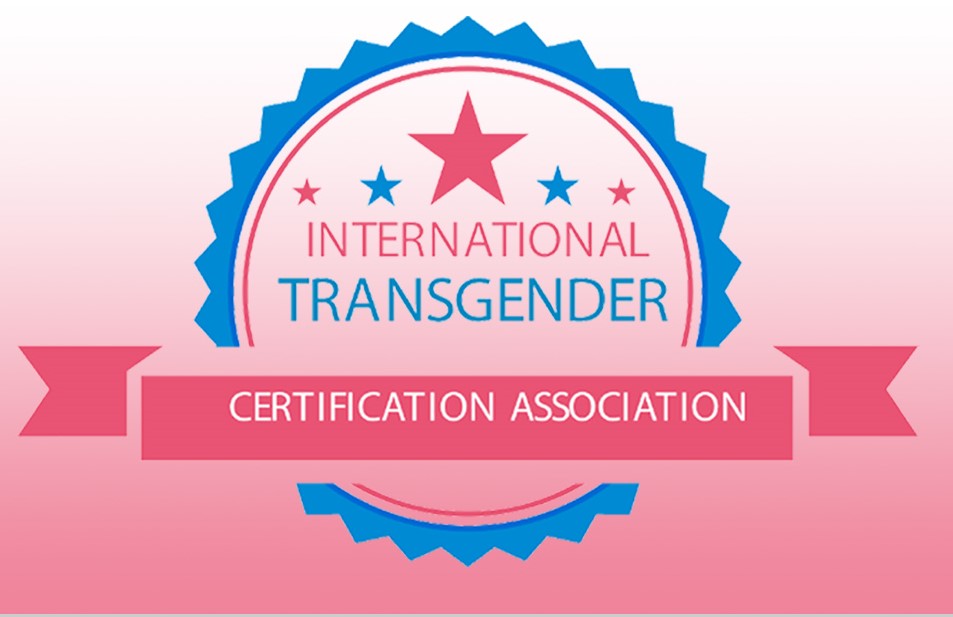 The International Transgender Certification Association (ITCA) provide’s credentialing, standards of practice, professional identity, and self-regulation for service providers of the Transgender, Gender Non-Conforming and Non-Binary Community. Therefore, this training is ideal for Clinicians, Therapists, Counselors, Psychologists, Psychiatrists, Nurses, Nurse Practitioners, Case Managers and those individuals who work directly with a Gender Expansive population and are looking for formal training and continuing education credits. The International Transgender Certification Association (ITCA) provide’s credentialing, standards of practice, professional identity, and self-regulation for service providers of the Transgender, Gender Non-Conforming and Non-Binary Community. Therefore, this training is ideal for Clinicians, Therapists, Counselors, Psychologists, Psychiatrists, Nurses, Nurse Practitioners, Case Managers and those individuals who work directly with a Gender Expansive population and are looking for formal training and continuing education credits.
The purpose of ITCA is to provide a cohesive organization that credentials healthcare professionals and community providers by promoting ethical guidelines, offering training and education, and developing networking resources. Upon completion of our course, you will receive documentation to certify that you are a Transgender Care Therapist/Professional (TCT/TCP) and be awarded CEU’s for your participation.
Register Here!
|
|
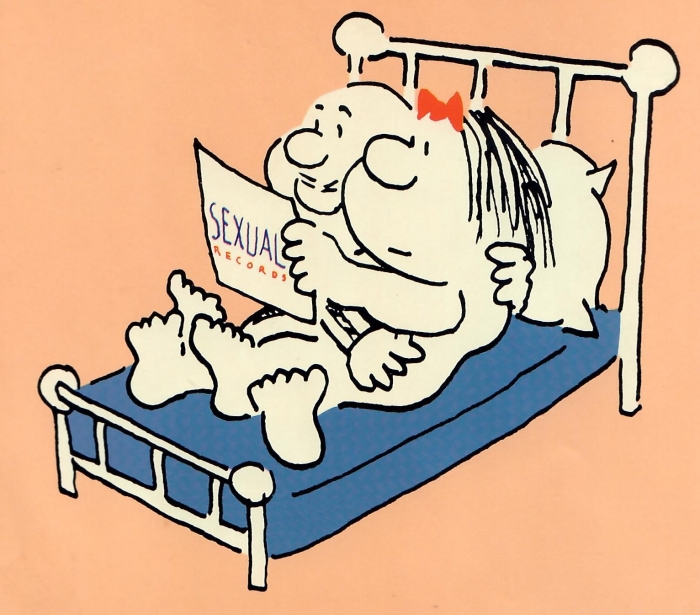
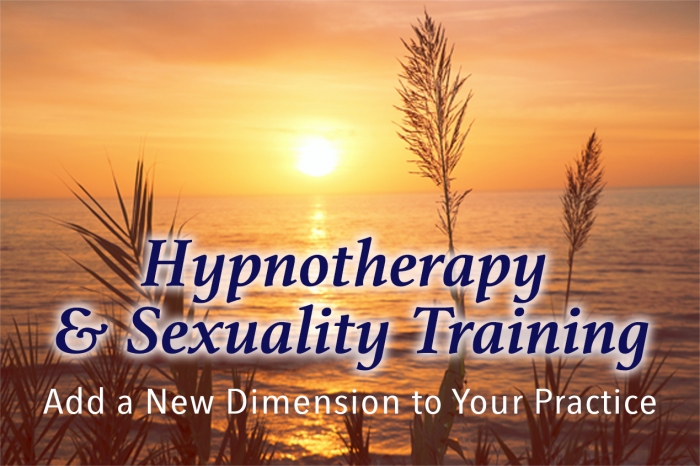

 The International Transgender Certification Association (ITCA) provide’s credentialing, standards of practice, professional identity, and self-regulation for service providers of the Transgender, Gender Non-Conforming and Non-Binary Community. Therefore, this training is ideal for Clinicians, Therapists, Counselors, Psychologists, Psychiatrists, Nurses, Nurse Practitioners, Case Managers and those individuals who work directly with a Gender Expansive population and are looking for formal training and continuing education credits.
The International Transgender Certification Association (ITCA) provide’s credentialing, standards of practice, professional identity, and self-regulation for service providers of the Transgender, Gender Non-Conforming and Non-Binary Community. Therefore, this training is ideal for Clinicians, Therapists, Counselors, Psychologists, Psychiatrists, Nurses, Nurse Practitioners, Case Managers and those individuals who work directly with a Gender Expansive population and are looking for formal training and continuing education credits.


